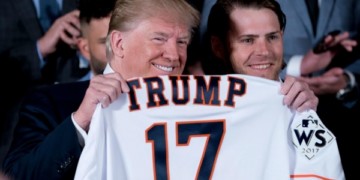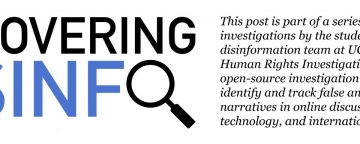Maria GarciaBlockedUnblockFollowFollowingDec 2
What Makes a Person Morally Qualified to be Supreme Court Judge?
By Maria Garcia
36 years ago, in the summer of 1982, at a high-school house party in the suburbs of Maryland, a 15 year old girl was sexually assaulted by a 17 year old boy. The boy and his friend were visibly drunk when they pushed the girl into a bedroom and locked the door behind them. The boy strapped the girl onto the bed, and climbed on top of her, covering her mouth and attempting to remove her clothing. In the midst of ‘uproarious laughter’, he forcefully fumbled his hands over her body, while his friend watched with encouraging amusement. Drunk with enthusiasm, the friend jumped on the bed, toppling the two to the ground, giving the girl a golden opportunity to escape the room.
The young girl, a now 51 year old Dr. Christine Blasey Ford, recalled this traumatic night in front of the entire nation. She stood, under oath, before the US Supreme Court and gave a name to the 17 year old boy: a now 53 year old US Supreme Court Nominee, Brett Kavanaugh.
Brett Kavanaugh: a republican judge who has arduously dedicated his life to his career, was nominated to the court by President Donald Trump in July. The allegations surged at the eve of his arrival onto the shortlist of Supreme Court candidates, when he was only a small step away from the very prestigious life-long position of Supreme Court Judge. His response to Dr. Ford’s allegations? It wasn’t me.
Is she sure it was him? Did he do it? Who do you believe?
Litigating an event that occurred 36 years ago at the dawn of such a critical national moment is complicated. Judge Kavanaugh now sits on the bench of the Supreme Court, in the inconclusive shadow of the allegations made. These questions may never be answered; the faces in the room that night never identified. But is this even the most pressing moral question that needs to be addressed? For a job interview of this caliber, we need to go a step further and ask not only if the teenage Kavanaugh is guilty or not, but rather, if the adult Kavanaugh is responsible or not.
The Moral Foundation Theory seems fitting when considering this case, as it explores varying moral justifications, more specifically, the clash and misunderstanding between liberals and conservatives. Five moral foundations are proposed, two more pertinent to liberals (fairness/reciprocity and harm/care), while conservatives tend to go beyond these two, relying on all five equally (ingroup/loyalty, authority/respect, purity/sanctity).
If we interpret the moral foundation of fairness as related to cooperation among unrelated individuals, the first matter to consider in this trial is ‘what entails a fair process?’ Cases of sexual assault are complex given their private nature. In a toss between ‘he said, she said’, it is difficult to imagine any decisive finality. For this reason, one must attempt to eradicate this doubt. By conducting a thorough investigation? Or even, a withdrawal of the candidacy on the premises of uncertainty? Perhaps for a more libertarian view this would deem appropriate, or even, necessary. During the Senate Hearing, when proposed to ask for an FBI investigation, Kavanaugh chose to ignore this option, casting a fog of skepticism around his actions. Why wouldn’t he simply show everyone he has nothing to hide? The fact of the matter is, the FBI investigation that was conducted was by no means thorough, described by Senator Jeff Merkley as “a sham”, a “strangled investigation (…) designed to provide cover, not to provide the truth.” And so, Kavanaugh’s actions remain uncertain.
At the same time however, is it fair to be punished for something you may not have done? It is important to appreciate how both Kavanaugh and Ford, and their families, have suffered great turmoil with this affair. Both parties were exposed, received death threats and public scrutiny.
So, to fully grasp the opposing sides in this case, we must depart from a view of morality that only regards justice and fairness. We can see then how for conservatives, fairness can be overridden by the moral concern of purity and sanctity.
On a moral standpoint, who do you trust more? The man who preserves a pure and untainted portrait of himself, or the man who in spite of sin redeems himself and prioritizes fairness and equanimity?
When regarding Kavanaugh’s target audience, in this case Republicans, it makes sense that his approach to the allegations highlighted purity of character (the good, studious, virgin choir-boy) more than simply fairness, as a means to secure his audience’s trust. In an interview for Fox News, Kavanaugh demanded: “I want a fair process, where I can defend my integrity!” Contrastingly with the Democrat’s general view of fairness, here Kavanaugh viewed fairness as the right to clear his name and reach the goal he worked arduously to deserve.
Hence, the way in which he responded to the allegations with a belligerent temperament of self-pity was accepted and justified by those who value purity of character, but heavily criticized by those who value the moral foundation of harm/care, emphasizing compassion and kindness for others. For conservatives, who may prefer to trust the saintly image of the man, he was right to get angry and emotional, as his name was being smeared. As Kavanaugh demonstrated through his perhaps theatrical tears, he was a victim, and therefore excused of his aggression and lack of compassion towards the other victim at stake. For liberals however, who may prefer to trust the man who, independent of his past, choses to forgive and ensure fairness in his present, this reactive and victimizing behavior was seen as a character flaw, enough to be disqualifying for the position of Judge. Furthermore, it didn’t bode well for him to display this aggressive demeanor — lashing out, interrupting and talking back to the Senators — when the allegations against him related to such violent actions. Ironically, Kavanaugh himself considers it important for a judge to “keep (their) emotions in check, and be calm amidst the storm.”
What about the instances of perjury during his Hearing? Does infringing purity trump infringing honesty? According to the Code of Ethics, does perjury not disqualify a person to be judge? Confessing to bad behavior — excessive drinking, memory-lapses and sexual references in his yearbook –would entail succumbing to impurity, risking being regarded with disgust and disappointment. Lying, denying to answer, or being evasive and reactive to senator’s questions regarding these issues, in this case, was justified in order to preserve reputation. Liberals tend to be less concerned with these ideals of purity, and thus are more forgiving towards these behaviors, nevertheless, the fact that Kavanaugh denied them and was disproved by several colleagues ended up causing a larger problem of distrust towards his overall character, and his fitness to be judge.
If we go further and consider ingroup loyalty — trust and cooperation within the ingroup and distrust and wariness towards the outgroup — we can see the partisan war which divides the US. Was there really fairness to begin with? The political position of the Senate prior to the accusations has remained quite stable. It seemed both sides already knew where they would stand, independent of the dilemma at hand. How could Senators vote honestly and impartially if the betrayal of their group was at stake? For the Republican’s, voting against Kavanaugh would mean less legislation power, giving them less freedom to propose laws according to their moral standpoints.
Nevertheless, considering the position of Supreme Court Judge, or any umpire position for that matter, partisan bias is a critical threat which puts in question one’s ability to perform their responsibilities. Kavanaugh himself corroborated this in a speech to the Catholic University of America: “First, and most obviously, a good judge, like a good umpire, cannot act as a partisan.” Kavanaugh’s behavior did not reflect this. Instead, he spoke consumed by resentment and conspiratorial thoughts regarding the opposing party, placing the blame of the allegations on “Trump-hating Democrats out for revenge “on behalf of the Clintons.””
We don’t know, nor can we assume, how Kavanaugh will perform his duties. We can only know what he has demonstrated hitherto, and his reaction to opposition did not shine a promising light on his character, nor on his capacity to be a rational and impartial professional. In the end, the question of guilt will remain unknown and in the past, so long as a thorough investigation isn’t conducted. But as we have seen, this is only where the moral pondering begins, for if this were “any other job interview (he would probably) have been written off as unqualified.”



























Connect with us